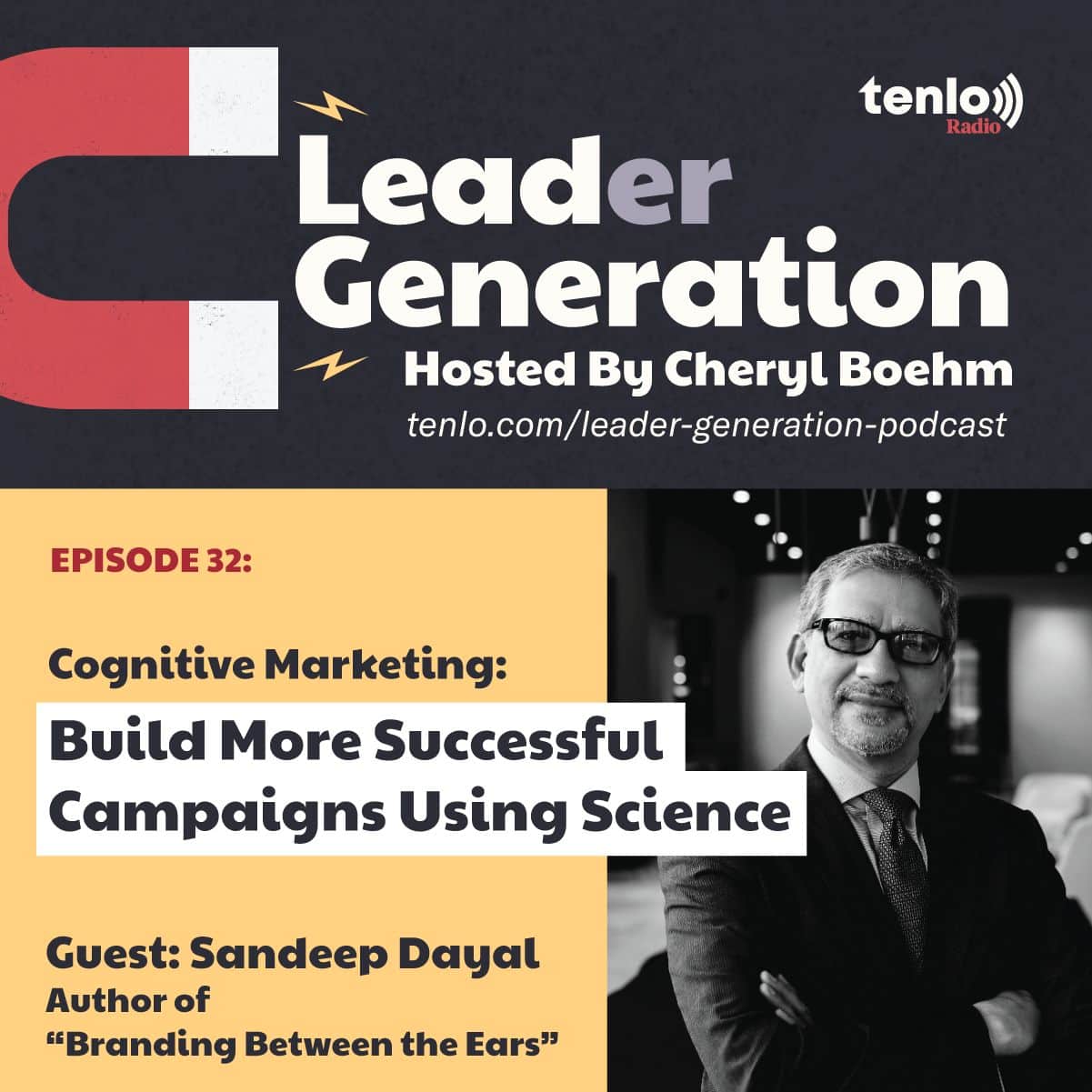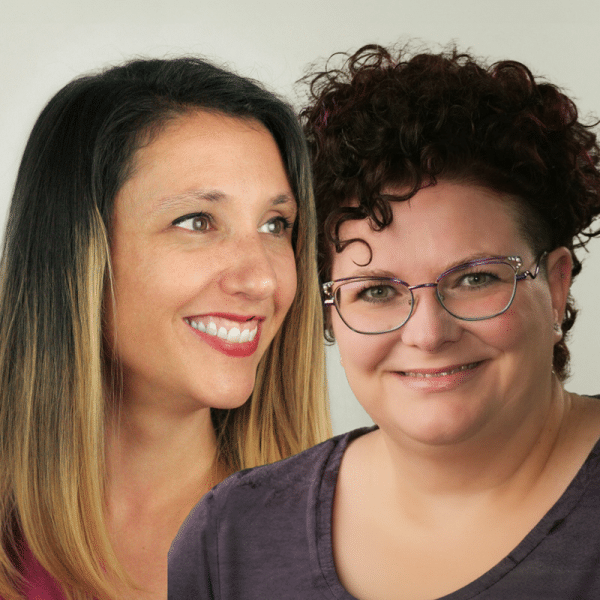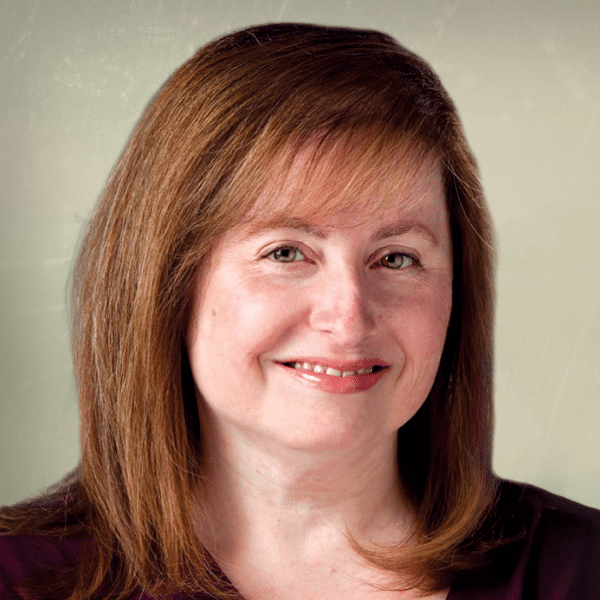Cognitive Science In Marketing
Panel Discussion
How can marketers build better connections with consumers?
Empathy. In business, sometimes we’re too focused on the details of our products, or the features of what we sell, that we forget about the needs of others. We must communicate with customers how they want us to communicate with them.
Human-to-human marketing is really powerful. Deep empathy should be a starting point for any marketing campaign. It allows marketers to connect with people so much more effectively than just a list of benefits.
What value does cognitive science offer to marketers?
Marketers already use research techniques, like surveys and focus groups, to try and better understand customers. It makes sense to take it one step further.
Cognitive science explores how humans think, learn, remember, perceive, and make decisions. This is valuable information that marketers can use to develop successful marketing campaigns.
How can cognitive science improve user experience?
Cognitive science is such a huge component of user experience (UX), which is all about looking at things from a user’s point of view. When you talk about your product or service, you can’t just convey what it does. You also need to figure out how it will make people’s lives easier or better. Incorporating that emotional connection is key in user experience.
Can we combine data and cognitive science to build better marketing strategies?
Absolutely. Data science has become a crucial part of modern marketing. By analyzing big data, marketers can gain valuable insight into consumer behavior and improve their strategies. In addition, cognitive science helps us understand why customers behave the way they do. This knowledge can be applied to develop effective marketing campaigns and enhance customer experiences.
How can marketers prepare for the future of cognitive marketing?
There are people who are really good at cognitive science. Then there are people who are really great at marketing and creating human-centric user experiences.
What’s often missing is the link in between that helps bring those two deep areas of expertise together.
Data literacy is becoming an important part of every profession. Marketers don’t need to become professional cognitive scientists. But you need to know how to consume the data and use it to make decisions.
Cheryl Boehm: Hello, and welcome to Office Hours, where twice a month we get together to talk about some of the different trends and topics that are impacting everyone in the digital marketing industry. Joining me today, we have a few members of the Tenlo team. We have Tessa Burg, Sean Hirsch, and Tom Madrilejos. So welcome.
Cheryl Boehm: Today’s topic is cognitive science and how we can really use that to harness the power of human psychology to influence consumer behavior. If you have any questions, add them to the chat until then I’m going to get us started.
Cheryl Boehm: So a few weeks ago I had the opportunity to talk with Sandeep Dayal on the Leader Generation podcast. And he is a leading mind in marketing strategy and the author of Branding Between The Ears.
Cheryl Boehm: In that episode, we talked a lot about cognitive science. So I’m really curious to get your thoughts on that episode and see if there were any aha! moments for you or key takeaways that you wanna share. So who wants to get us started?
Tessa Burg: I can go first.
Cheryl Boehm: Great.
Tessa Burg: One of the things that really struck me in the interview was his point about the power of empathy and when we connect with each other on an emotional level how that does translate into relationships that generate revenue. ‘Cause at the end of the day, we are looking for leads, we’re looking for this exchange of mutual benefit.
Tessa Burg: And the way he talked about it reminded me a lot of what I tell my kids, you know, like sometimes I think kids like our clients are a little too internal facing and they go by the rule, treat others how you want to be treated but it’s really about how others wanna be treated. You know, we call that at the platinum rule, just treat others how they wanna be treated.
Tessa Burg: And in business, sometimes we’re so deep in the detail of the features of our product, of the features of what we’re selling, we kind of forget that other people are seeing it from their lens of the challenges they’re facing and the needs they have. And we have to “me” message them and engage with them how they want to be engaged.
Tessa Burg: So I thought that was really powerful and kind of like, you know goes across into the theme of human to human marketing and really having that deep empathy as a starting point for your campaigns.
Cheryl Boehm: Yeah, that’s a great one to point out. And I know personally I’ve been seeing just so much content around empathy and how important it is to add into content marketing. And I think like the pandemic really spurred that. And to have marketers take a deeper look at that. So yeah, that’s a great point. How about you, Sean? What were some of your aha! moments from the episode?
Sean Hirsch: Sort of building off of that point of empathy. I think Sandeep did a great job of highlighting just the importance of emotion and marketing in general. Like Tessa said sometimes we get so caught up in making sure that all consumers know here are the features of our product, here are the benefits of it, but, like the campaigns that he brought up as examples like the dove campaign and the US Navy one the common thread between both of those is there is that element of emotion. There’s an emotional connection there. It wasn’t just about conveying like the soap gets you clean. Obviously, we know that. But by bringing in an aspect of empathy and also like a genuine tone to the messaging, I think that just connects and resonates with people so much more powerfully than just that list of benefits that we often see in the space. So that definitely stuck out to me.
Cheryl Boehm: Very true. Yeah, I loved his examples, they were really great and helped you better understand some of the points he was making. Tom, what were your thoughts on the episode?
Tom Madrilejos: Yeah, definitely along the same lines. I think something that really stood out to me was his value proposition overall which is if marketing and branding as industries are pursuing customer and human centric like paradigms and we want data at the center of that, then why shouldn’t the professionals from the academic, like, side of psychology and behavioral science, why shouldn’t they be more involved? And I think our industries we’ve already been there with like surveys, focus groups, that sort of thing but it’s definitely getting taken a step further and I would love to see how they contribute going forward.
Cheryl Boehm: Yeah, that is interesting. And he and I had an offline conversation about how important research is, and how adding just that framework of the cognitive sciences around research can really just give us much better insights into what consumers are thinking. So, very cool. So I have a question for Sean. I’m gonna put you on the spot. How do you think cognitive science can help you as you’re working on UX and UX design?
Sean Hirsch: So I actually really love this episode because I feel like cognitive science is such a huge part of UX and what I do, you know no matter if it’s on email or a landing page, I always have to put on that empathy hat and put myself in whoever our users are going to be their shoes.
Sean Hirsch: And so when he is talking about like meeting users’ needs and not just conveying what something does, but figuring out what that like surprise and delight aspect could be. That is definitely something that’s top of mind for me when I’m doing the flow for a page or something is what’s the story we can tell here and how can we make sure that the payoff has that emotional connection?
Sean Hirsch: And it’s not just, this is what I’m gonna do for you but it’s how I’m gonna help you or make something in your life easier, or even just make you feel good in making sure that that’s incorporated into whatever the user experience is.
Cheryl Boehm: I love that. What a great answer. Tom, how about you? Like, what are your thoughts on your discipline and how cognitive science can be applied to develop marketing strategy?
Tom Madrilejos: I would love to see how research and experimentation from the academic world, which has to be built with like a genuine, like scientific rigor and buy-in from its own community that validates the results. I would love how to see where that intersects with research and experimentation that’s already happening within the product and marketing and technology fields where we’re increasingly using data scientists, employing data scientists and making data driven decisions. Like I think there could only be better results and like more rigor when we start to put those two things together. So I would absolutely welcome the academic point of view into marketing strategy and product strategy.
Cheryl Boehm: That’s great. All right, Tessa.
Tessa Burg: Yeah. So eager. So you know, right now we’re looking at platforms that can start to learn from results and start serving the highest and best performing creative. And I’m excited to see how emotion and benefit-driven messaging compares to product messaging. And one thing, if I were to have a hypothesis is that the emotional selling is gonna work really well at the top and middle of the funnel and through, you know, attribution management we’re gonna see that those customers come back and convert on a product ad. And maybe that’s super obvious.
Tessa Burg: But the reason that I bring it up is because sometimes when we look at ad creative, we look at it in isolation. We don’t look at it as where is this customer experiencing it? And we also don’t take into account how it’s being delivered.
Tessa Burg: Like today, this year we are doing a better job of using data science to give us the answer. We don’t have to be so subjective when we’re sitting down and saying, “Oh I like this one because it checks all my boxes.”
Tessa Burg: Again, it’s like really hard not to do that. I mean, it’s like, we’re having this conversation here we’re all like, “Oh yeah, we shouldn’t do that.” And then you get into a client meeting and everybody’s coming at it from their own lens.
Tessa Burg: So when I think, you know, what can technology do better? First and foremost, it’s show the value of the metrics at the top and be more disciplined in how we show those results. Sometimes we just spit out the backend, like, “Here’s your report. Here’s a table.” It’s like, what if we started to pull in more visual results and say, “Here’s where in the journey and what context this user responded to this message. And how does that translate down?”
Tessa Burg: I think right now, you know, a lot of times, even if we have really great creative, we’re still presenting it, delivering it and measuring it in isolation. And what tech can do, you know especially if you’re attaching like an application like Canva that, you know, can come up with those different versions all the way down to an attribution model then you’re literally allowing people’s behaviors and reactions to your creative to optimize itself. So I think that’s a really exciting. I think the hardest part art is getting people to buy in and let you do it.
Cheryl Boehm: Yeah, that is very true. I think, I mean, I think there’s just so many places that we can start to leverage the cognitive science and behavioral science within marketing. And we’ve really, we’re just at the tip of the iceberg right now. So it’s gonna be exciting to see how we continue to incorporate it. So we’re about out of time or is there any last thoughts that anyone has before we close out?
Tom Madrilejos: I’m gonna tap one thing onto what Tessa said ’cause I think it’s so important and it is as the world becomes more data literate and as all of our professions kind of we kind of all have to become in our own way. Like, I mean, there’s real data scientists but we have to be like citizen data scientists too. Like we have to understand this stuff, we have to be able to consume this information.
Tom Madrilejos: I think about what the scientific community has with people like Neil DeGrasse Tyson who are there for like public understanding. Like they’re there as practitioners who can do the astrophysics but they’re also like, let me tell you about it like what this means and in these kind of words. And so maybe there’s, maybe that’s something that I mean, marketing, branding technology, we can all benefit from having that layer of like interpersonal communication.
Tessa Burg: Yeah. You know, it’s so funny you say that Tom ’cause I follow this podcast called AI in Business. And they said the biggest gap right now in AI is the translator role.
Tom Madrilejos: Right.
Tessa Burg: You know, there’s people who are really good at data science and building models. And then there are people who are really great at marketing and creating these awesome messages and experiences and what’s in between. Like who’s helping bring those two deep areas of expertise together.
Tom Madrilejos: And that has such a big impact on content marketing because it’s like now it’s harder and harder to find generalists who can, who will, you know be able to write in depth for an audience about every subject where it’s like, you gotta, if you’re writing about like AI you have to like partially practice it and if you really want to like get into the details. So yeah, definitely.
Tessa Burg: Yeah, it’s super, like, I’m gonna do one more shout-out of someone else but, you know, a couple years ago had the opportunity to go to Data Science Dojo, which is like a one-week boot camp. And you know, I saw that for my lens. Like we saw the description I’m like “Oh my gosh! This is gonna be amazing. We’re gonna take this information back and present it to all our clients.” And they’ve been around a while and then myself and my other coworker were there, we’re the only two people ever from marketing.
Tessa Burg: And if you think about like, this place is running dozens of trainings a year, hundreds of people going through of this program over the last however long there’s been around like five, eight years, only two people from marketing? Like, I was shocked, I was bummed, I was like, “We’re not there yet.” You know, like we need the translators. And for people who do love data, if you can fill that role, it will also help in how we determine investment.
Tessa Burg: Because right now making emotional connection, making creative, like using our human powers is under-invested and what’s over-invested is trying to find tech that solves it quickly for you. And there is no easy switch, there is no lightning bolt one thing.
Tessa Burg: So if we are able to satisfy, you know, use machine learning where it’s best served, but we need people to be able to sell like what that overall vision looks like so that we can invest where our brains work best which is creativity. Machines can’t have empathy.
Cheryl Boehm: Yeah, they’re not gonna take over the world.
Tessa Burg: Not yet.
Cheryl Boehm: All right. Well on that note, we’re gonna close out this session of Office Hours. So thank you all for participating and thank you all for our listeners and everyone who is, you know watching and taking part from that standpoint.
Cheryl Boehm: We’re gonna continue to bring you more episodes, like I said, twice a month, and we’re gonna cover all kinds of topics. If there’s a particular topic you want us to cover, there is a form that you can fill out on our website on Tenlo.com. So fill that out and we will make sure we cover it. All right. Thanks again, and we’ll see everyone later.
Tessa Burg: Bye.
Sean Hirsch: Bye.
Tom Madrilejos: See ya.
Panel Discussion

Guest Panel:
Tessa Burg | Vice President of Technology at Mod Op
Tom Madrilejos | Product Strategist at Mod Op
Sean Hirsch | UX Designer at Mod Op
Moderator:
Cheryl Boehm | Co-Host of Lead(er) Generation | Director of Copywriting at Mod Op
Cognitive Marketing: Build More Successful Campaigns Using Science

Marketing is a science. And now, thanks to advances in cognitive science, marketers can harness the power of human psychology to influence consumer behavior. Learn more about cognitive marketing during an interview with seasoned expert, Sandeep Dayal.
Listen Now

